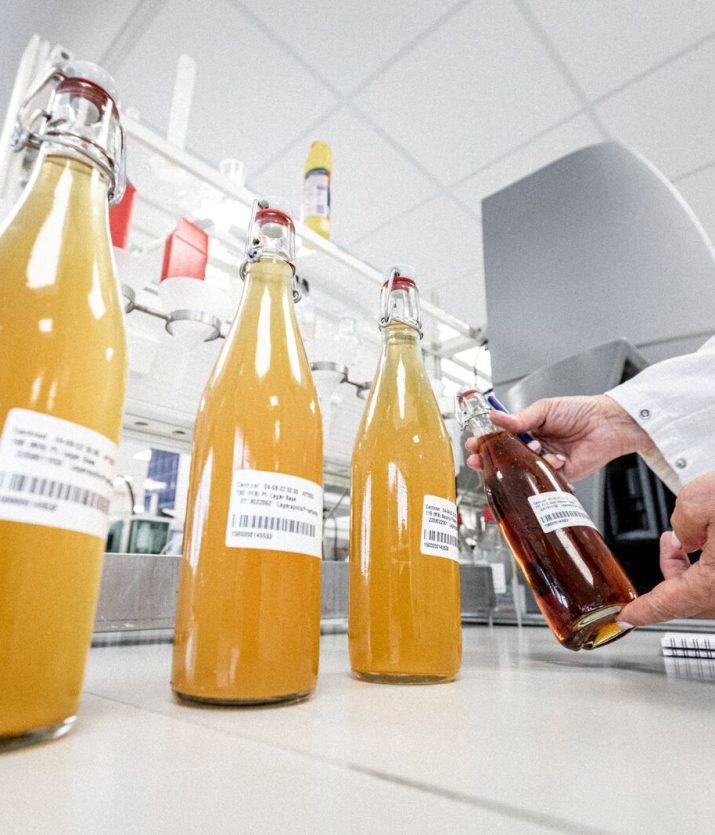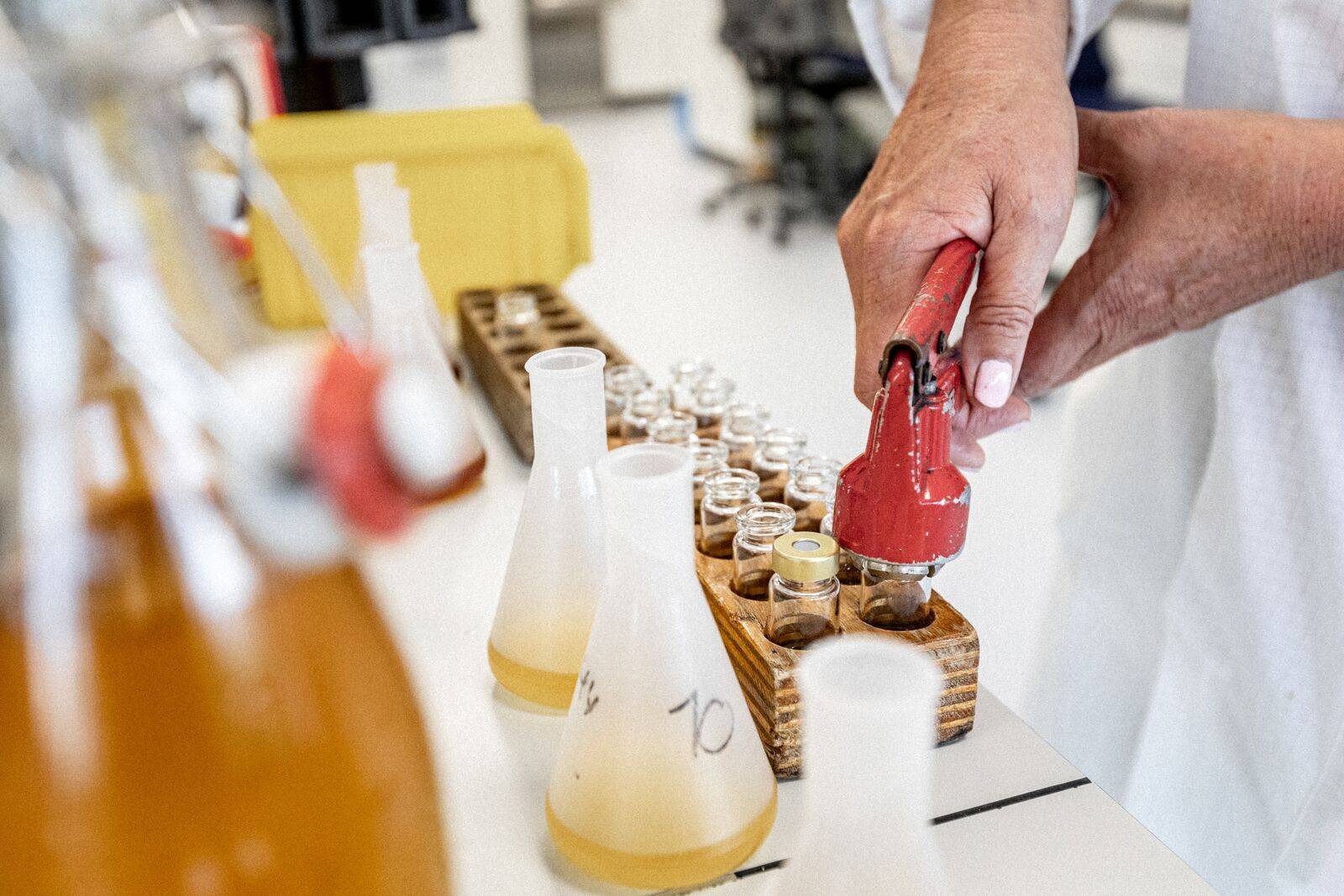Inhouse brewing knowledge
At Holland Malt, we combine the precision and consistency of a dedicated maltster with the practical, real-world insight of experienced brewers. Our team includes in-house brewing specialists who understand exactly how malt behaves across different brewing processes, from craft to large-scale production.
What sets us apart is not only our knowledge, but also the tools we have at our disposal. We operate our own pilot brewery, where we conduct small-scale brewing trials to explore and validate the performance of new malt profiles, barley varieties, and recipe adjustments. In addition, we are closely connected to a large-scale production brewery, giving us the unique ability to directly test our malts under real-world, industrial brewing conditions.
This dual setup allows us to go beyond standard micro-malting trials. We can test new barley varieties first on a pilot scale and then validate their brewing performance immediately at full scale. This provides us, and our customers, with deep, practical knowledge of malt functionality in real brewhouse environments.
This is particularly valuable during harvest transitions, when changes in barley crop characteristics may affect brewhouse performance. Our direct access to brewing data and results allows us to anticipate such shifts and proactively provide brewhouse-specific recommendations to our customers. That way, we don’t just supply malt, we help customers consistently get the best out of it.
From sensory profiling to full-scale brewing simulations, we translate our insights into practical value, and we guarantee our malt performs reliably in every brewery setup.


Barley certification
In The Netherlands, Holland Malt currently demands that all malting barley is planted and produced by certified growers. The aim of this certification is to further ensure food safety prior to examination at the maltings. Barley growers are required to pay attention to matters such as fertilisation, good agricultural practices to prevent formation of mycotoxins, the use of proper crop-protection products, hygienic conditions for equipment and storage facilities, etc. Certification is performed by an independent company familiar with the grain business and the primary production of grains.